Celebrating 10 Years of Care, Service in Mexico
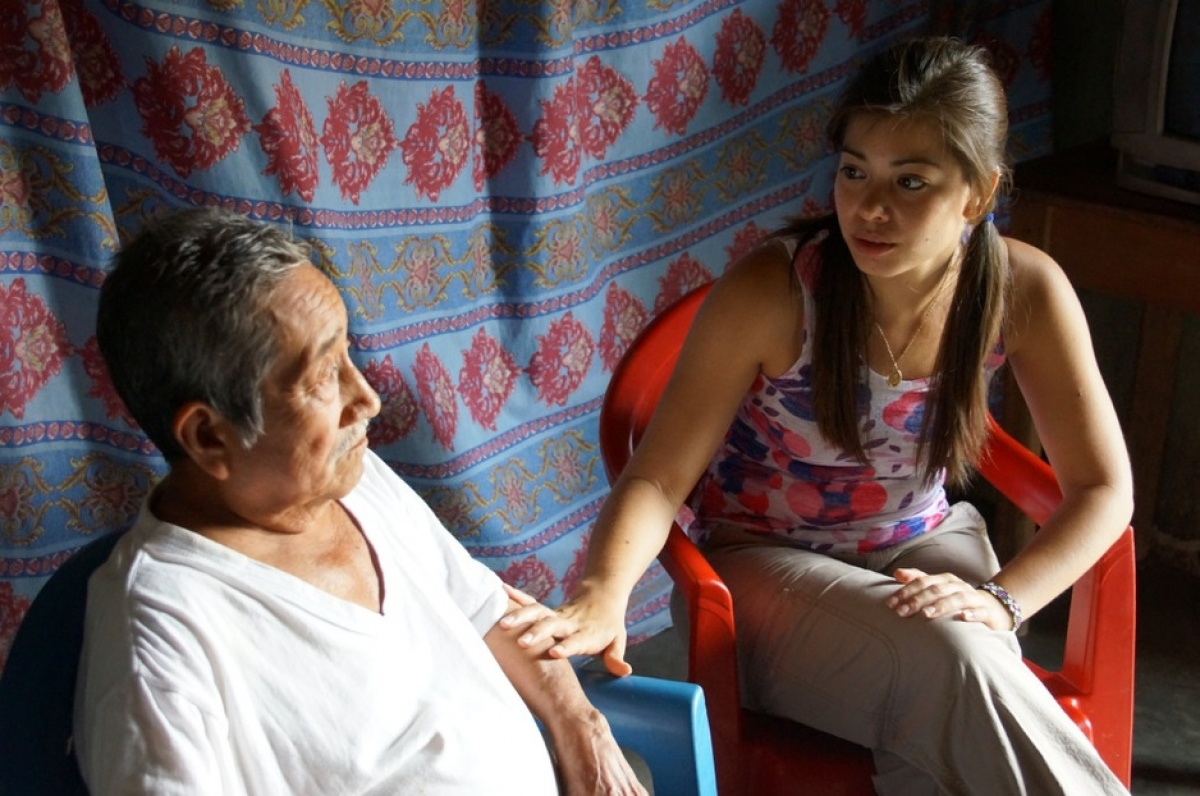
Clinical training, community-based care, and connecting patients with specialized services central to decade’s work
Posted on Aug 6, 2021
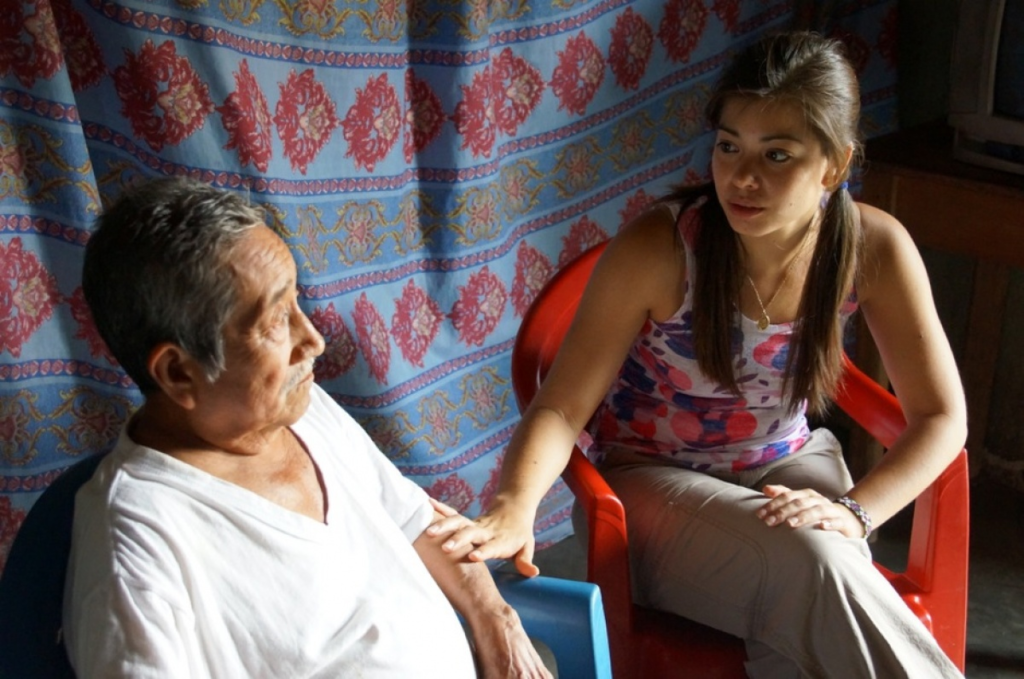
A decade ago, a team of clinicians and health advocates in rural Chiapas united under a simple yet radical vision: every person has a right to health.
The team—Dr. Daniel Palazuelos, Lindsay Palazuelos, and Dr. Hugo Flores—had been providing health care in rural communities of the Sierra Madre region for years and had seen just how far that vision was from reality: dirt roads flooded and impassable, medications often out of stock, and clinical staff left unsupported.
They were determined to change that reality and push for justice in health care. In 2011, Compañeros En Salud was born.
In the years since, Compañeros En Salud has grown from a small, grassroots organization to a team of 200 people—from doctors to drivers to first-year clinicians—dedicated to making a difference. That growth has paved the way for broader change. Over the past decade, the team has served more than 25,000 patients and completed more than 133,000 consultations in areas ranging from maternal health to chronic diseases, providing free, high-quality medical care to patients in some of Chiapas’ most remote communities.
And the mission has always been more than medical. Through the Right To Health Care program, Compañeros En Salud has for years tackled health inequity at the root, connecting patients with specialized care in hospitals—often hours away from patients’ homes—and ensuring they have food, transportation, and housing assistance, known as “social support,” to help them access care, recover, and stay healthy.
Through it all, patients have always been at the center of Compañeros En Salud’s work.
Patients first inspired the work, decades ago; and patients continue to drive Compañeros En Salud to improve the quality of care provided. This is true, now more than ever, as the team responds to COVID-19 and continues to make the vision of health as a human right a reality for all people in Chiapas.
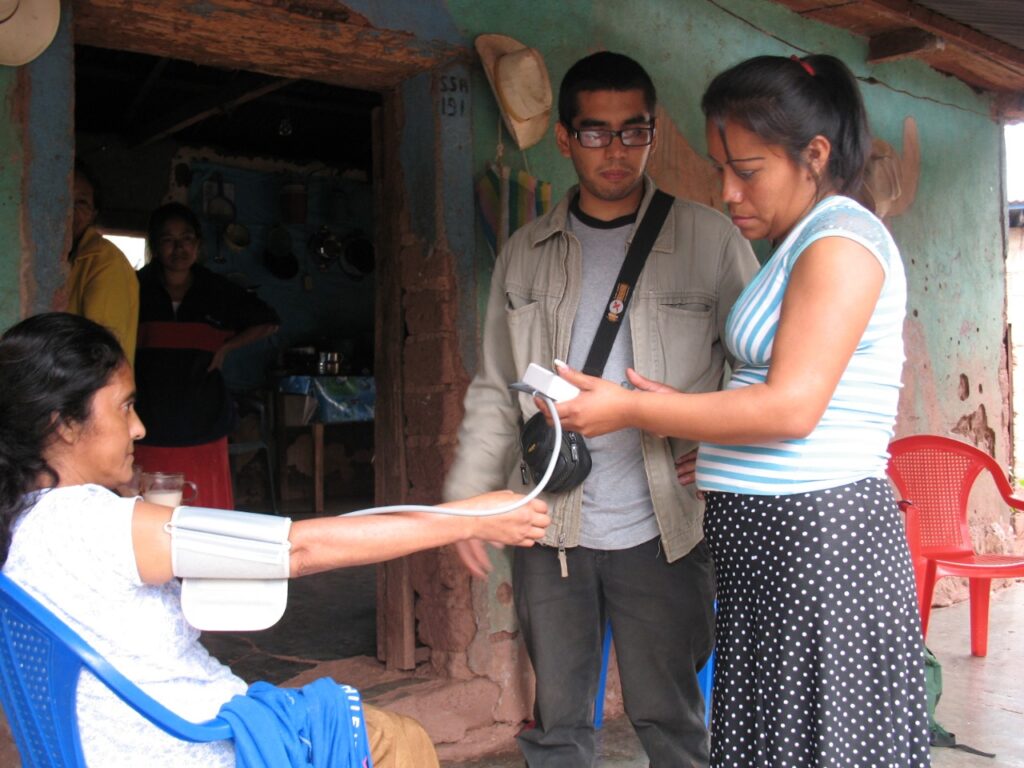
For years, Compañeros En Salud has hired and trained local residents to serve as community health workers, providing medications, basic health services, and accompaniment to their neighbors in the nine rural communities where it works. In the above picture, Compañeros En Salud Co-founder Dr. Hugo Flores accompanies a community health worker on a house call in the community of Matasano in 2014. Compañeros En Salud’s team of community health workers has since grown to more than 85 people supporting their friends, neighbours, and family members.
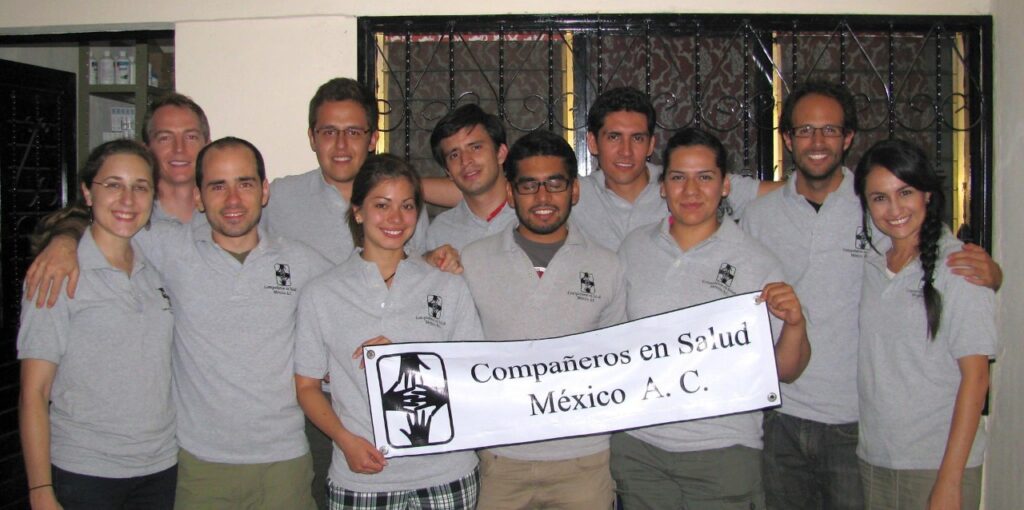
Since its founding in 2011, Compañeros En Salud has made training the next generation of clinicians central to its work. The pasante program is one way that Compañeros En Salud accomplishes this goal. Each year, a cohort of first-year clinicians can apply and choose to complete their year of social service—required of all health care services graduates by the Mexican government—in one of the rural communities where Compañeros En Salud works. This program gives the new clinicians valuable work experience, mentorship, and the opportunity to serve the community.
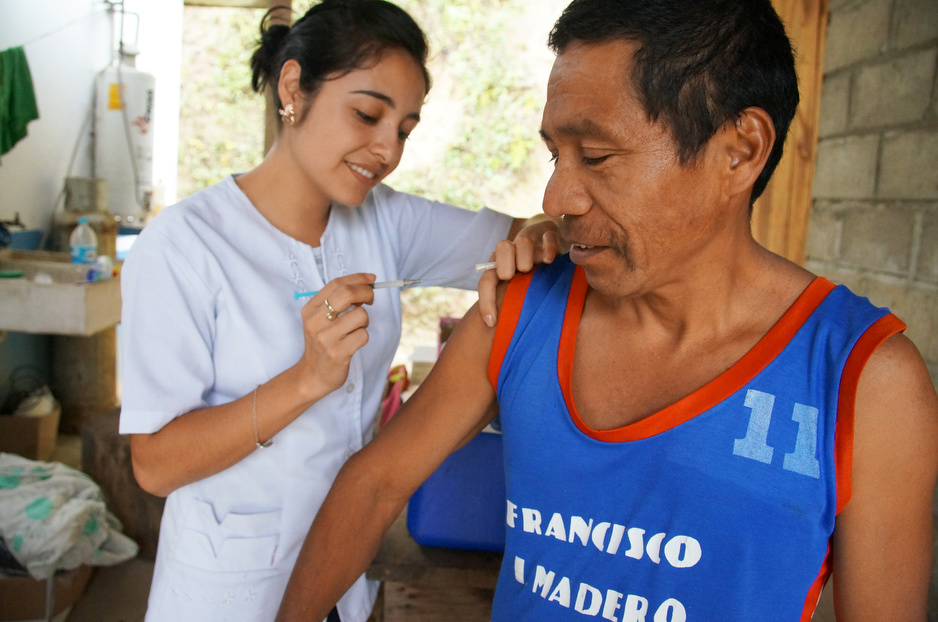
In Jaltenango, a town of around 10,400, Compañeros En Salud has its main office and supports a hospital, which includes a respiratory disease center and the maternal health center, Casa Materna. But for the thousands of people living in rural communities outside of Jaltenango, these facilities, while crucial, can be difficult to access, especially during the rainy season, when dirt roads become flooded and impassable. To counter these challenges, Compañeros En Salud has partnered with the Mexican Ministry of Health to staff and support clinics in nine rural communities, providing places for patients to receive vaccinations, medications, and check-ups without having to travel miles on unsafe roads or spend precious earnings on costly taxi fares.
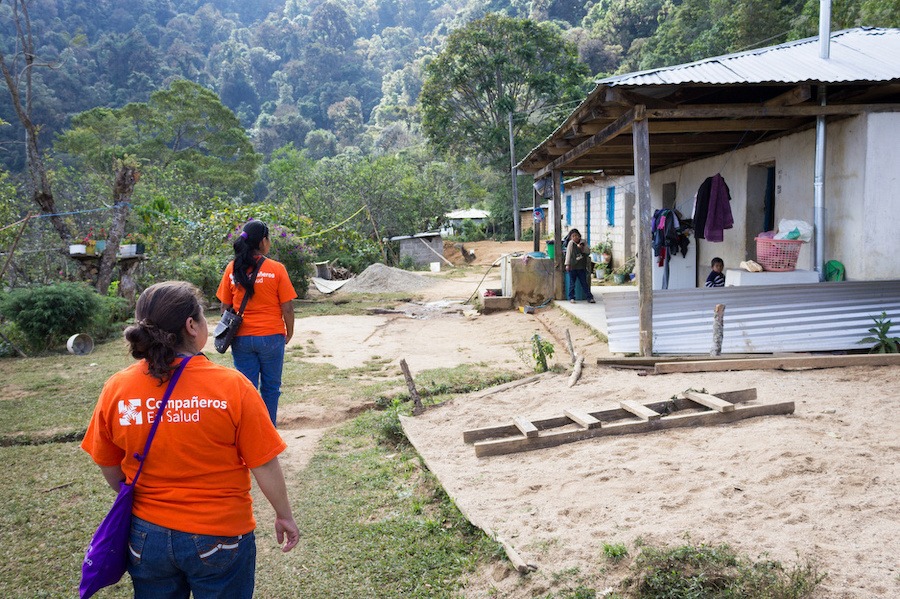
Key to Compañeros En Salud’s work is accompaniment—walking alongside patients as they recover and stay healthy. In order to accomplish this, Compañeros En Salud enlists the help of dozens of community health workers, who make house calls, accompany patients to their medical appointments, and offer emotional support. These workers, who come from the communities they serve and bring years of cultural and linguistic knowledge, are essential to helping patients navigate a complex health system, get their medications, and follow their treatment plans.
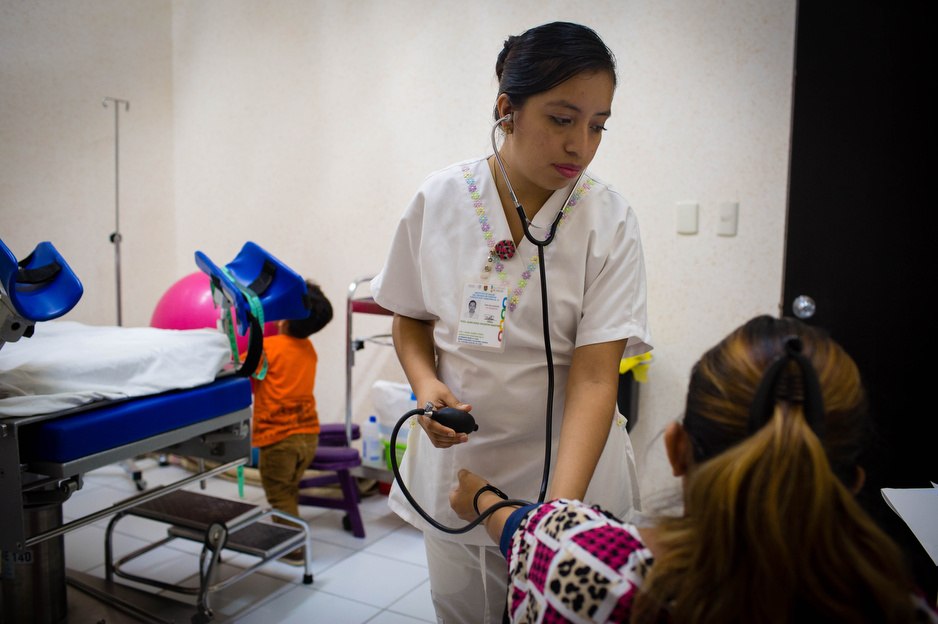
Over the years, Compañeros En Salud has also made maternal and child health a key focus, notably through Casa Materna—a maternal health center where expectant mothers receive prenatal care, lactation advice, and a place to stay before, during, and after their deliveries. The home is staffed by first-year obstetric nurses, who are supervised by obstetric nurse supervisors. A doctor and a gynecologist are available at the nearby PIH-supported hospital, in case complications arise. In the above picture, Alma Rosa “Rosi” Valentin Martinez (left), an obstetrics nurse pasante fulfilling her social service year, examines 35-year-old Gloriena Elizabeth Roblero Mendoza, who came to Casa Materna pregnant with her fifth child in November 2017. She had been experiencing pain in her side and was afraid she was going into early labour, but Compañeros En Salud staff helped her get a blood test and ultrasound images and confirmed she was in good health.
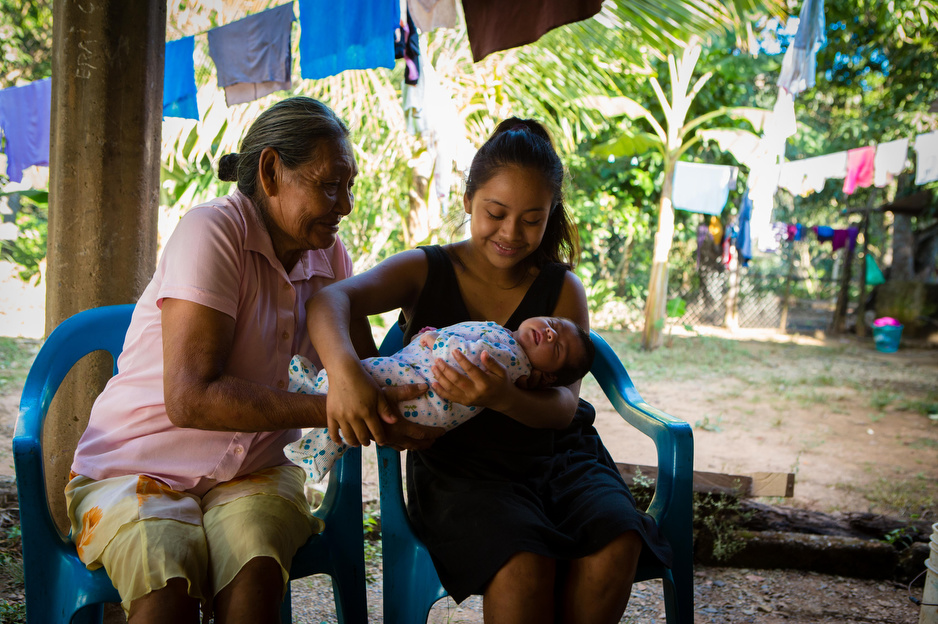
For years, Compañeros En Salud has integrated traditional and modern forms of care into its clinical practice. At Casa Materna, the clinical team includes not just doctors and nurses, but also traditional midwives, who bring decades of experience in culturally relevant forms of healing and caregiving to help mothers deliver their babies in the way that feels most comfortable for them.

As COVID-19 swept through Mexico and around the world in 2020, Compañeros En Salud was ready to respond—training clinicians, implementing comprehensive infection prevention and control protocols, and adapting its programs to continue lifesaving services while prioritizing patients’ safety. Compañeros En Salud’s years of experience building trust and relationships in the communities where it works paved the way for its role as a key partner to the Mexican Ministry of Health during the pandemic response.
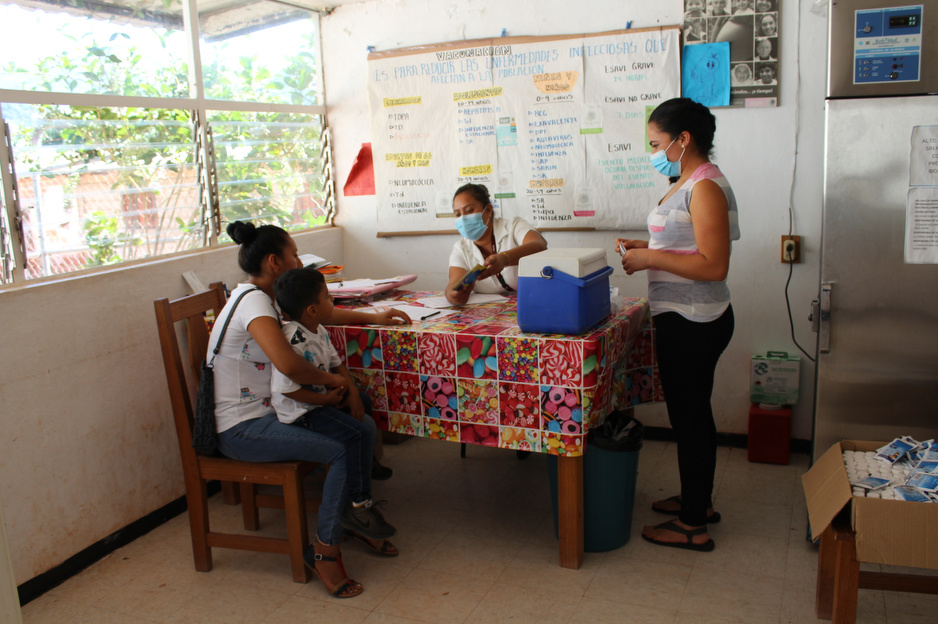
Even as rising COVID-19 cases put Chiapas’ health system to the test, Compañeros En Salud continued to provide lifesaving medications and clinical services to thousands of patients, going above and beyond to ensure that patients had access to quality medical care and social support during a difficult and chaotic time.
Article originally published on pih.org
Community health workers are key to Mexico’s COVID-19 response. Read more about the compassionate care they provide in Rural Mexico.



